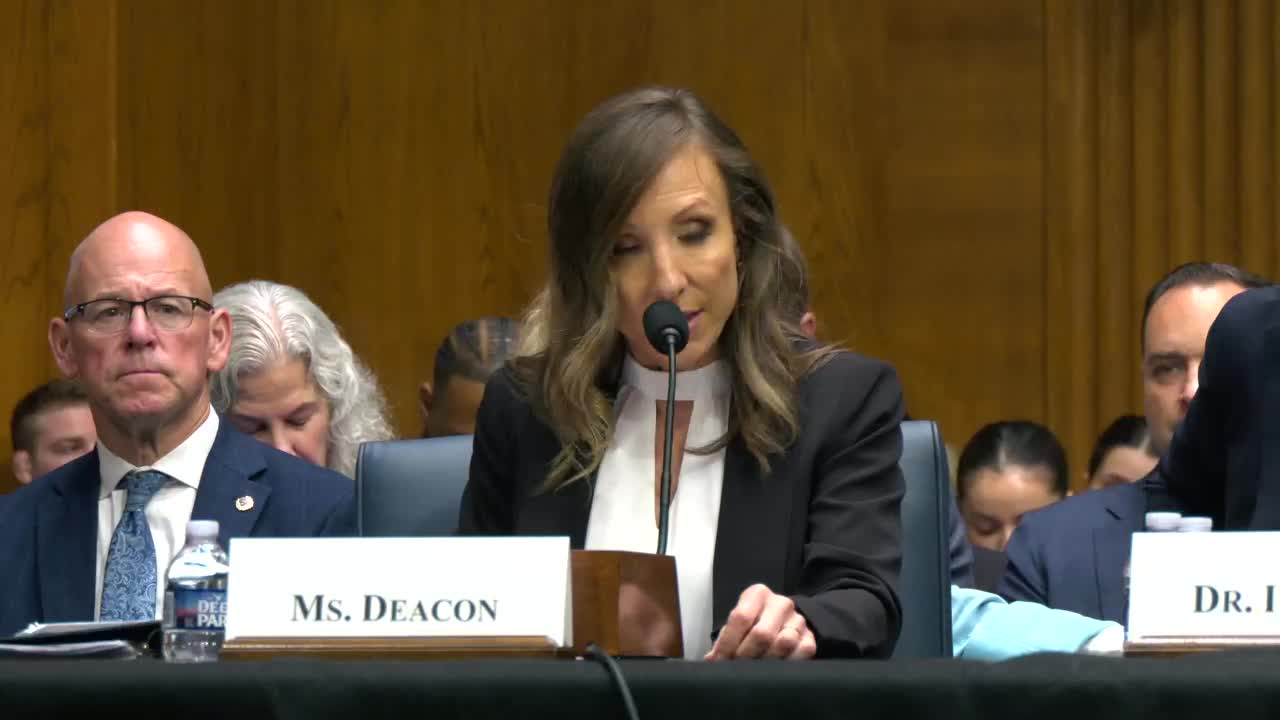Health Economists Propose Transparency Measures to Reduce Rising Healthcare Costs
July 31, 2025 | Health, Education, Labor, and Pensions: Senate Committee, Standing Committees - House & Senate, Congressional Hearings Compilation
This article was created by AI summarizing key points discussed. AI makes mistakes, so for full details and context, please refer to the video of the full meeting. Please report any errors so we can fix them. Report an error »

The U.S. Senate Committee on Health, Education, Labor, and Pensions convened on July 31, 2025, to address the pressing issue of healthcare affordability, a concern that resonates deeply with many Americans. The meeting highlighted the urgent need for solutions to lower healthcare costs and empower patients, as nearly half of insured individuals report delaying or skipping necessary care due to financial constraints.
Key discussions centered around the distinction between health coverage and actual healthcare access. Experts emphasized that without addressing the root causes of rising costs, any policy changes would merely shift expenses rather than resolve the underlying issues. This sentiment was echoed by Bennett Bolita, an economist at the American Enterprise Institute, who pointed out that the staggering $5 trillion spent annually on healthcare reflects both valuable services and inefficiencies that need to be addressed.
Bolita suggested that Congress could enhance market transparency and oversight, particularly regarding hospital pricing and the role of pharmacy benefit managers (PBMs). He noted that a lack of competition and information often leads to inflated prices, which disproportionately affects patients and taxpayers. For instance, the current structure incentivizes hospitals to consolidate with physician practices, creating barriers for independent providers and driving up costs.
Dr. Brian Miller, a practicing physician and health policy expert, reinforced the need for price transparency in healthcare. He criticized the low compliance rates with existing transparency rules and called for stricter enforcement, including penalties for non-compliance. Miller advocated for placing price information directly in electronic health records, enabling patients and doctors to make informed decisions together.
The committee also discussed the role of PBMs, which have come under scrutiny for their lack of transparency regarding drug pricing and rebates. Miller urged for a review of past mergers in the PBM market, suggesting that these consolidations have not delivered the promised cost reductions.
As the committee continues to explore these critical issues, the discussions from this meeting underscore a collective commitment to reforming healthcare in a way that prioritizes patient access and affordability. The outcomes of these deliberations could significantly impact the lives of many Americans, making it essential for policymakers to act decisively in addressing the healthcare affordability crisis.
Key discussions centered around the distinction between health coverage and actual healthcare access. Experts emphasized that without addressing the root causes of rising costs, any policy changes would merely shift expenses rather than resolve the underlying issues. This sentiment was echoed by Bennett Bolita, an economist at the American Enterprise Institute, who pointed out that the staggering $5 trillion spent annually on healthcare reflects both valuable services and inefficiencies that need to be addressed.
Bolita suggested that Congress could enhance market transparency and oversight, particularly regarding hospital pricing and the role of pharmacy benefit managers (PBMs). He noted that a lack of competition and information often leads to inflated prices, which disproportionately affects patients and taxpayers. For instance, the current structure incentivizes hospitals to consolidate with physician practices, creating barriers for independent providers and driving up costs.
Dr. Brian Miller, a practicing physician and health policy expert, reinforced the need for price transparency in healthcare. He criticized the low compliance rates with existing transparency rules and called for stricter enforcement, including penalties for non-compliance. Miller advocated for placing price information directly in electronic health records, enabling patients and doctors to make informed decisions together.
The committee also discussed the role of PBMs, which have come under scrutiny for their lack of transparency regarding drug pricing and rebates. Miller urged for a review of past mergers in the PBM market, suggesting that these consolidations have not delivered the promised cost reductions.
As the committee continues to explore these critical issues, the discussions from this meeting underscore a collective commitment to reforming healthcare in a way that prioritizes patient access and affordability. The outcomes of these deliberations could significantly impact the lives of many Americans, making it essential for policymakers to act decisively in addressing the healthcare affordability crisis.
View full meeting
This article is based on a recent meeting—watch the full video and explore the complete transcript for deeper insights into the discussion.
View full meeting